Intro
Identify meningitis symptoms in kids, including fever, headache, and stiff neck. Learn about viral, bacterial, and fungal meningitis signs, diagnosis, and treatment options to ensure timely medical attention and prevent complications.
Meningitis is a serious and potentially life-threatening infection that affects the meninges, the protective membranes surrounding the brain and spinal cord. When it comes to children, it's essential for parents and caregivers to be aware of the symptoms of meningitis, as prompt medical attention can significantly improve outcomes. Meningitis in kids can be caused by various factors, including bacteria, viruses, and fungi, and its symptoms can vary depending on the age of the child and the severity of the infection.
In children, meningitis can progress rapidly, and its symptoms can be subtle, making it crucial for parents to be vigilant and seek medical help immediately if they suspect something is wrong. The infection can cause a range of symptoms, from mild to severe, and it's not uncommon for children to exhibit non-specific symptoms, such as irritability, lethargy, or loss of appetite, which can make diagnosis challenging. As a result, it's vital for parents to be aware of the common symptoms of meningitis in kids and to seek medical attention if they notice any unusual behavior or physical changes in their child.
The importance of recognizing meningitis symptoms in kids cannot be overstated, as early detection and treatment can significantly reduce the risk of long-term complications and improve outcomes. In fact, according to the Centers for Disease Control and Prevention (CDC), prompt medical attention can reduce the risk of death from meningitis by up to 50%. Furthermore, the CDC estimates that approximately 1 in 10 children who contract bacterial meningitis will die, highlighting the need for prompt recognition and treatment of the infection.
Meningitis Symptoms in Infants
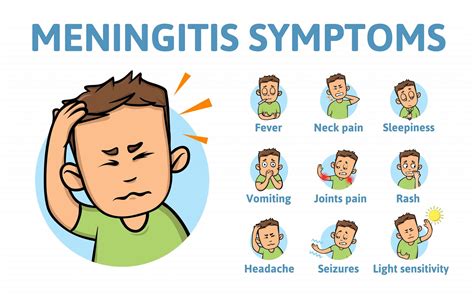
Common Symptoms of Meningitis in Infants
Some common symptoms of meningitis in infants include: * Fever * Irritability * Lethargy * Poor feeding * Vomiting * Bulging fontanelles * Stiff neck * Seizures It's crucial for parents to seek medical attention immediately if they notice any of these symptoms in their infant, as prompt treatment can significantly improve outcomes.Meningitis Symptoms in Toddlers and Preschoolers
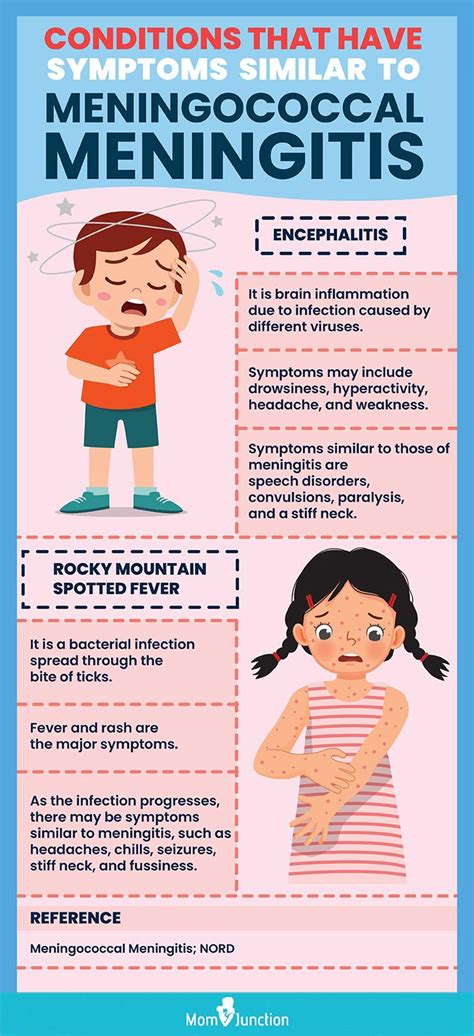
Recognizing Meningitis Symptoms in Toddlers and Preschoolers
Some key symptoms of meningitis in toddlers and preschoolers include: * Fever * Headache * Stiff neck * Vomiting * Confusion * Irritability * Lethargy * Loss of appetite Parents should monitor their child's behavior and physical condition closely, as meningitis can progress rapidly in this age group.Meningitis Symptoms in School-Age Children
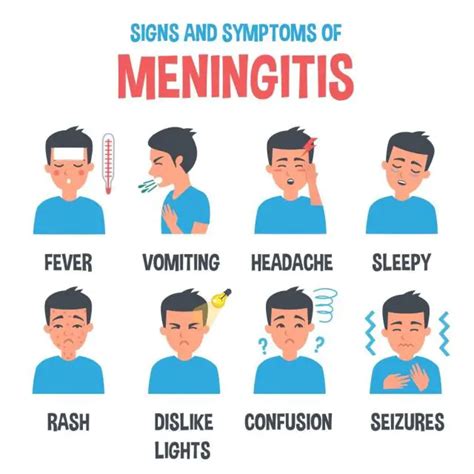
Common Symptoms of Meningitis in School-Age Children
Some common symptoms of meningitis in school-age children include: * Fever * Headache * Stiff neck * Vomiting * Confusion * Irritability * Lethargy * Loss of appetite * Seizures * Rash Parents should monitor their child's behavior and physical condition closely, as meningitis can progress rapidly in this age group.Diagnosing Meningitis in Kids
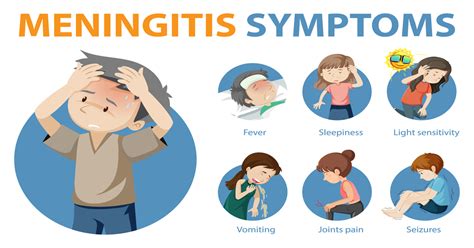
Diagnostic Tests for Meningitis
Some common diagnostic tests used to diagnose meningitis include: * Lumbar puncture (spinal tap) * Blood tests * Imaging studies (such as CT or MRI scans) * CSF analysis It's essential for parents to seek medical attention immediately if they suspect their child has meningitis, as prompt diagnosis and treatment can significantly improve outcomes.Treating Meningitis in Kids
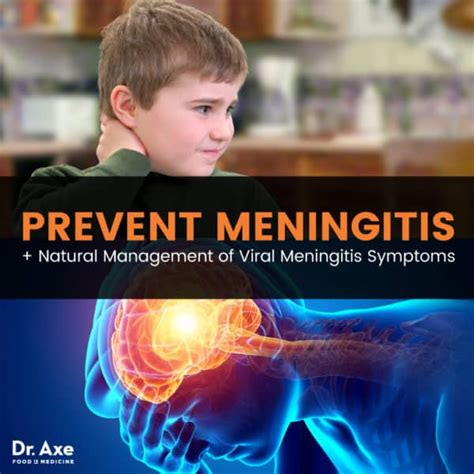
Treatment Options for Meningitis
Some common treatment options for meningitis include: * Antibiotics * Supportive care (such as hydration and pain management) * Monitoring (such as vital sign monitoring and neurological checks) * Hospitalization (in severe cases) It's essential for parents to work closely with their child's healthcare provider to develop an effective treatment plan and to monitor their child's progress closely.Preventing Meningitis in Kids
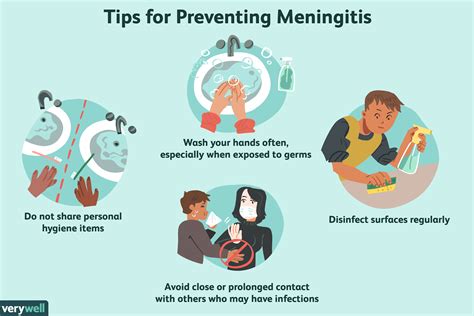
Prevention Strategies for Meningitis
Some common prevention strategies for meningitis include: * Vaccination (such as the meningococcal conjugate vaccine) * Good hygiene practices (such as frequent handwashing) * Avoiding close contact with people who have the infection * Avoiding sharing food, drinks, or utensils It's essential for parents to work closely with their child's healthcare provider to develop an effective prevention plan and to monitor their child's health closely.What are the symptoms of meningitis in kids?
+The symptoms of meningitis in kids can vary depending on the age of the child and the severity of the infection. Common symptoms include fever, headache, stiff neck, vomiting, and confusion.
How is meningitis diagnosed in kids?
+Meningitis is typically diagnosed through a combination of physical examination, medical history, and laboratory tests, such as a lumbar puncture (spinal tap) and blood tests.
What is the treatment for meningitis in kids?
+Treatment for meningitis in kids typically involves a combination of antibiotics, supportive care, and monitoring. The type and duration of treatment depend on the cause of the infection, the severity of the symptoms, and the child's overall health.
In conclusion, recognizing the symptoms of meningitis in kids is crucial for prompt medical attention and effective treatment. By being aware of the common symptoms, diagnosis, treatment, and prevention strategies, parents can play a vital role in protecting their child's health and reducing the risk of long-term complications. If you suspect your child has meningitis, don't hesitate to seek medical attention immediately. Share this article with your friends and family to raise awareness about meningitis in kids, and let's work together to keep our children safe and healthy.
